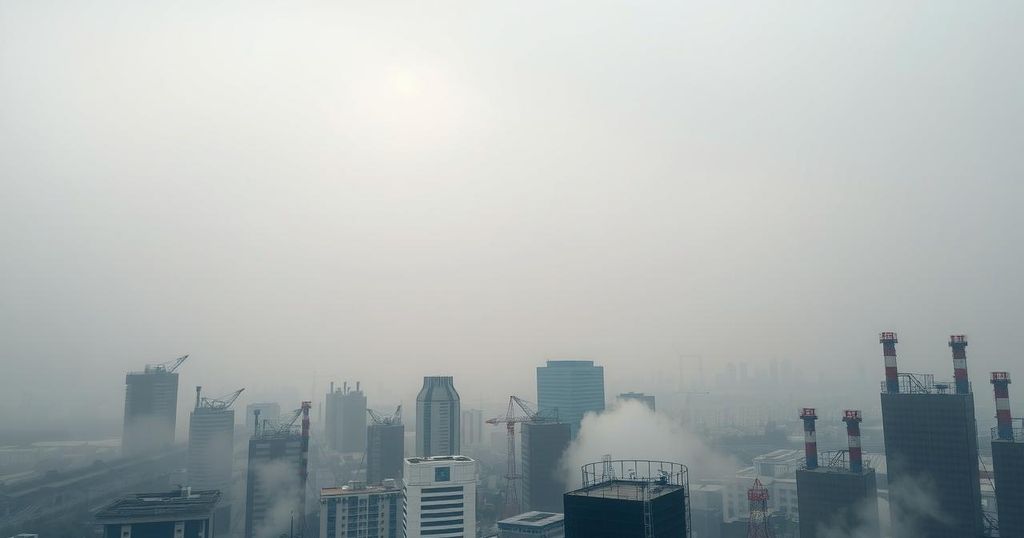Ghana, Nigeria, Chad, and Rwanda Ranked Among World’s Most Polluted Countries

The 2024 World Air Quality Report ranks Ghana, Nigeria, Chad, and Rwanda among the most polluted countries globally, with alarming PM2.5 levels seriously endangering public health and potentially causing significant economic losses. Immediate governmental reforms and pollution control measures are imperative to combat this crisis.
The 2024 World Air Quality Report reveals critical pollution levels in several African nations, with Ghana, Nigeria, Chad, and Rwanda among the world’s most polluted countries. This alarming trend poses severe risks to public health as millions are exposed to hazardous air quality.
Chad ranks as the most polluted nation globally, with a PM2.5 concentration of 91.8 µg/m³, significantly exceeding the WHO’s guideline of 5 µg/m³. Nigeria ranks 11th with 40.1 µg/m³, Rwanda 9th at 40.8 µg/m³, and Ghana 14th with 35.8 µg/m³, illustrating a significant air quality crisis in the region.
PM2.5 particles, which are exceedingly small and can penetrate deep into the lungs, are linked to serious health issues, including respiratory and cardiovascular diseases. Statistically, pollution shortens lifespans in severely affected regions by an average of 2.7 years. In Ghana alone, air pollution is responsible for approximately 28,000 deaths annually.
Ghana’s air quality has deteriorated markedly, revealing PM2.5 levels seven times above the safe WHO limit. The capital city, Accra, is the 16th most polluted city globally, with levels at 36.3 µg/m³, while Kumasi leads in pollution rates in Ghana, with 39.5 µg/m³. This represents a troubling increase from previous years.
The situation in Africa remains dire, with five of the top ten most polluted countries listed as African nations. The report highlights that only 24 out of 54 African countries have provided air quality data, emphasizing significant monitoring gaps. Over one third of African urban areas exceed WHO guideline levels for PM2.5.
Air pollution represents a grave public health crisis in Ghana, contributing to 28,000 local deaths each year—equating to a death every 19 minutes. Without intervention, fatalities could rise dramatically. The adverse effects of PM2.5 exposure extend beyond health, posing a potential economic loss of $137.8 billion by 2040.
Globally, only 17% of cities meet the WHO air quality standards, while countries such as Australia and Iceland are noted for maintaining cleaner air. Factors contributing to Africa’s air quality crisis include rapid urbanization, industrial emissions, and waste burning. With increasing reliance on NGOs for air quality data, the need for enhanced governmental monitoring initiatives is critical.
The report calls for stronger regulatory measures in Ghana, such as stricter emission laws, investment in renewable energy, and better air quality monitoring infrastructure. As Ghana faces the urgent reality of being among the top polluted countries, timely action is essential to safeguard public health and improve air quality.
The findings from the 2024 World Air Quality Report underline a serious air pollution crisis in several African countries, particularly Ghana, Nigeria, Chad, and Rwanda, placing them among the world’s most polluted nations. The alarming PM2.5 levels necessitate immediate governmental actions, including regulatory reforms and enhanced monitoring. Failure to address this urgent issue will exacerbate health risks and economic burdens in the affected regions.
Original Source: www.myjoyonline.com






